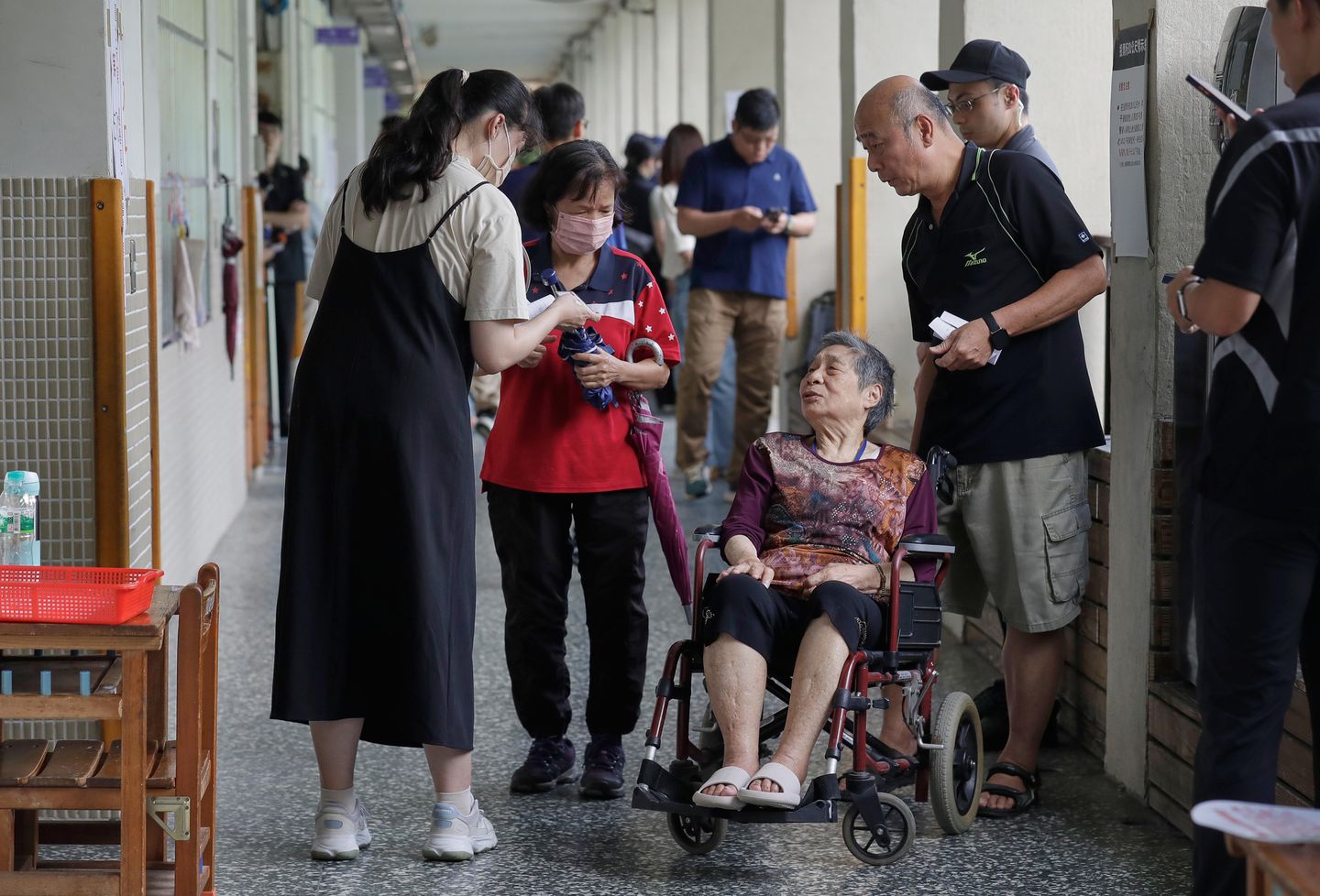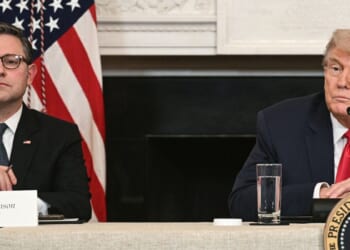
SEOUL, South Korea — A unique, grassroots political movement in Taiwan aiming to overthrow allegedly pro-China lawmakers appears to have failed spectacularly Saturday.
Per preliminary vote counts, every single one of the movement’s 24 targeted lawmakers retained their seats.
The “Great Recall” sought to overturn the opposition majority in the Legislative Yuan and re-empower President Lai Ching-te, whose policies have been obstructed by the chamber.
Mr. Lai, who takes a hard-line stance against Beijing, has sought to expand defense spending and strengthen policies aimed at countering China’s influence.
Political emotions in the run-up to Saturday’s recall votes had been charged.
Opponents of the movement had held angry demonstrations. According to Taiwanese media, citizen arguments had taken place in public places, such as recycling zones, in targeted constituencies. Long lines formed outside many polling stations prior to their opening at 8 a.m. Saturday.
“It is a wipe out of the movement,” said Bo Tedards, a U.S.-based researcher on Taiwan, of Saturday’s results. “I am surprised; I did not think it would be a complete wipeout.”
Reactions may be grim in Washington, where President Trump’s administration has been critical of the island’s modest defense expenditure.
A more upbeat reaction is likely in Beijing, where Mr. Lai is held in low esteem.
There remains a sliver of hope for the Great Recall.
A second tranche of opposition seats, seven, faces recall elections in August. Mr. Lai and his Democratic People’s Party need a net gain of just six seats to capture a legislative majority.
“We still have another vote,” said Great Recall supporter Chen Yun-chu, a Taiwanese academic based in the U.S. “We had 24 seats this time, and our focus and resources were diversified, so I hope the DPP and voters learn some strategy from this.”
Saturday’s overwhelming rejection suggests such hopes are forlorn. Mr. Tedards doubted that one or two lawmakers, at most, could be unseated in August.
The failure of the Great Recall makes the job of Mr. Lai more difficult for the remainder of his four-year term. He took office in May 2024.
In 2024 elections, the Taiwanese voted him into the presidency. However, they also gave the main opposition Kuomintang Party and the minor opposition Taiwan People’s Party a majority in the Legislative Yuan.
With the KMT and TPP forming a voting bloc, a confrontational political dynamic took shape.
The opposition used its majority to exercise control over budget and judicial appointments, and stymied many of Mr. Lai’s initiatives.
Frustrated DPP voters were meanwhile angered at what they considered to be the pro-Beijing bent of some KMT lawmakers.
At least one high-profile KMT figure appeared to offer an olive branch, post-result.
According to Associated Press reporting from the island, Fu Kun-chi, perhaps the most controversial of the allegedly pro-China lawmakers targeted for recall, said Saturday’s result meant Mr. Lai would have to meet with the opposition to “find a way for Taiwan to proceed in a more stable way in this chaotic world.”
“Technically, President Lai faces the same situation as before,” said Mr. Tedards. “But now he is going to have to go back to the drawing board: [The recall] was not his plan, but it is seen as that.”
He expressed hope that both political sides would step back to calm roiled political emotions.
While many democracies operate with power balanced between competing executives and legislatures, Taiwan’s polity is lively, with Yuan debates sometimes descending into brawls.
Mr. Tedards suggested the worst outcome would be a constitutional crisis — a double risk given that the Constitutional Court is currently frozen.
The “Great Recall,” was, observers believe, a creative, world-first use of the recall mechanism.
In most democracies, such as the U.S., recalls are implemented at the local, rather than the national level. The recall concept was turbo-charged in Taiwan to change the makeup of the national legislative body.
Any politician voted out Saturday would have vacated his/her seat ahead of a by-election, to be held three months later.
But the Great Recall’s failure Saturday was as dramatic as its genesis.
In South Korea, former President Yoon Suk Yeol took extreme measures to undo a similar political deadlock. Last December, he declared martial law and sent commandos into the opposition-led legislature.
The crisis ended with his impeachment and detention, and an opposition victory in June’s presidential election.
Taiwan has considerable import for the U.S, given that a defense of the island against peer-competitor China is arguably the most serious contingency the U.S. military trains for globally.
The island’s governance diverged from that of the mainland after Communist forces won China’s civil war in 1949, driving Nationalist forces to the offshore sanctuary.
Beijing vocally claims the island as part of China. It deploys multiple actions – from stern political rhetoric and attempts to influence the island’s citizenry, to tactics that isolate Taiwan in the global community and military intimidation in and over the Taiwan Strait — to keep pro-independence forces in check.
Though Washington is not formally allied to Taipei and maintains “strategic ambiguity” regarding any cross-Straits conflict, it is widely believed that U.S. forces would defend the island if battle was joined.
Some American pundits fear that Beijing’s ever-expanding naval and amphibious capabilities make a cross-strait invasion feasible by 2027.















